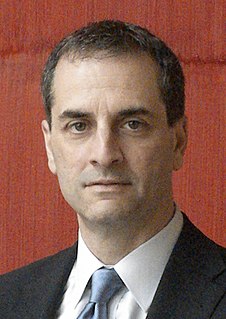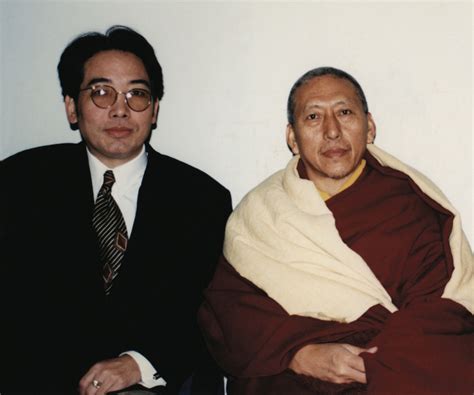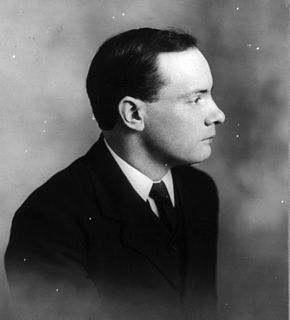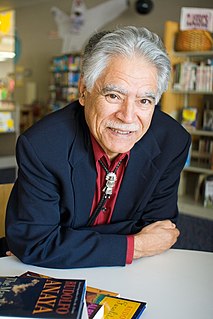A Quote by C.P. Snow
There is, of course, no complete solution. But we can do something. The chief means open to us is education There is no excuse for letting another generation be as vastly ignorant, or as devoid of understanding and sympathy, as we are ourselves.
Related Quotes
Kant does not think there is anything wrong with being beneficent from sympathy. He thinks we have a duty to cultivate sympathetic feelings by participating in the situations of others and acquiring an understanding of them. He thinks we also have a duty to make ourselves into the kind of person for whom the recognition that something is our duty would be a sufficient incentive to do it (if no other incentives were available to us). That's what he means by "the duty to act from the motive of duty".
Education will lead to understanding; understanding will lead to action. Education and understanding are going to be key to moving us forward. That's why I take every opportunity I can to try to educate Canadian people on the impact of intergenerational trauma. To tell them how, until 1951, indigenous people weren't allowed to leave the reserve without a permit. That it was illegal for a lawyer to give us advice. It was illegal for us to sell our wood, our cattle, without a permit. I want the next generation to understand we have endured, we have persevered and we are getting stronger.
This is one of their [the Christians'] rules. Let no man that is learned, wise, or prudent come among us: but if they be unlearned, or a child, or an idiot, let him freely come. So they openly declare that none but the ignorant, and those devoid of understanding, slaves, women, and children, are fit disciples for the God they worship.
In each of us there is another whom we do not know. He speaks to us in dreams and tells us how differently he sees us from the way we see ourselves. When, therefore, we find ourselves in a difficult situation to which there is no solution, he can sometimes kindle a light that radically alters our attitude - the very attitude that led us into the difficult situation.
For Americans the contradiction between national ideal and social fact required explanation and correction. Ultimately this contradiction did not lead to the abandonment of the ideal of equal opportunity but rather to its postponement: to the notion of achieving for the next generation what could not be achieved for the current one. And the chief means to this end was a brilliant American invention: universal, free, compulsory public education. This "solution" was especially important for children and families because it gave children a central role in achieving the national ideal.
Letting go of fixation is effectively a process of learning to be free, because every time we let go of something, we become free of it. Whatever we fixate upon limits us because fixation makes us dependent upon something other than ourselves. Each time we let go of something, we experience another level of freedom.
What is education? Properly speaking, there is no such thing as education. Education is simply the soul of a society as it passes from one generation to another. Whatever the soul is like, it will have to be passed on somehow, consciously or unconsciously, and that transition may be called education. ... What we need is to have a culture before we hand it down. In other words, it is a truth, however sad and strange, that we cannot give what we have not got, and cannot teach to other people what we do not know ourselves.
I would also hope that readers receive a larger understanding, or a different understanding, of what it means to be human, than they might have had before. We suffer from being quick to judge, quick to make excuses for ourselves and others, and I would like the reader to feel that we are all, more or less, in a similar state as we love and disappoint one another, and that we try, most of us, as best we can, and that to fail and succeed is what we do.
One of the most terrible things about the English education System in Ireland is its ruthlessness...it is cold and mechanical, like the ruthlessness of an immensely powerful engine. A machine vast, complicated... It grinds night and day; it obeys immutable and predetermined laws; it is as devoid of understanding, of sympathy, of imagination, as is any other piece of machinery that performs an appointed task. Into it is fed all raw human material in Ireland; it seizes upon it inexorably and rends and compresses and remoulds...
Regarding this Dhamma, it is not something that we can simply talk about or take another's word for it. We need to develop meditation so that the understanding arises clearly within oneself. It is not the case that merely by listening to another's explanation our defilements will disappear. When we gain some understanding we need to chew on it again so that we see it for ourselves with certainty: paccattam.






































